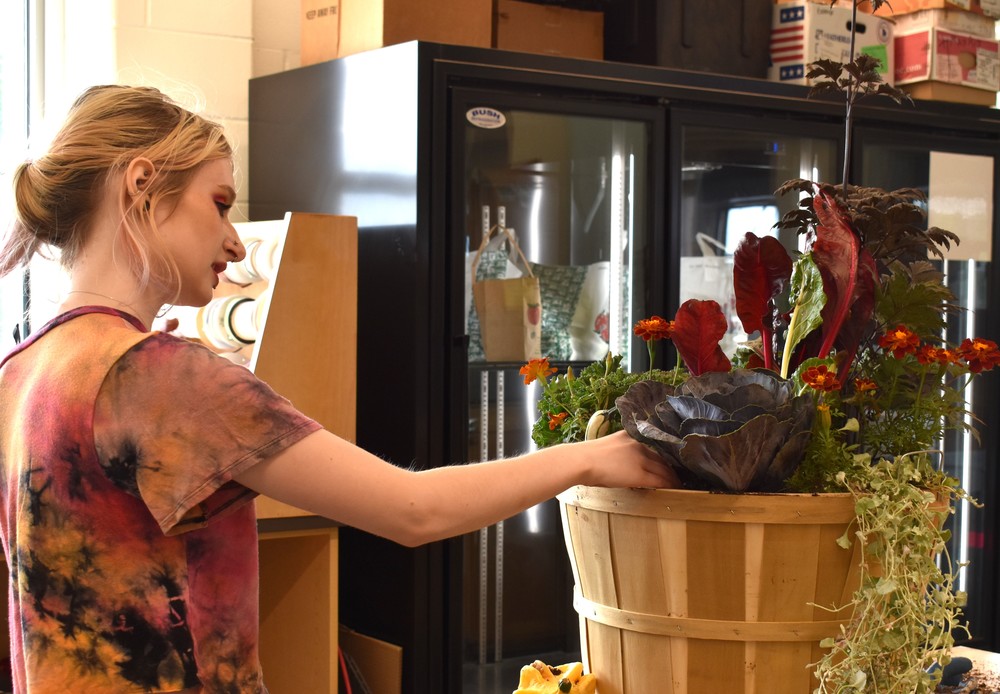This is part of a series highlighting the career and technical education programs offered at Sanford Regional Technical Center.
From planting garden beds in April rain to preparing greenhouses for winter frost, students in Sanford Regional Technical Center's Agricultural Enterprise and Environmental Systems program learn that agriculture doesn't pause for comfort—and neither do they.
Instructor Jenn Coverdale, a former organic vegetable and flower farmer, brings practical farming experience directly into the classroom. "Farming with students is my dream job," Coverdale said, and that enthusiasm translates into a dynamic learning environment where students tackle real agricultural challenges.
The two-year program balances necessary bookwork with extensive hands-on training. Students design and plant garden beds, maintain the greenhouse, grow produce and flowers for sales, create floral arrangements, perform basic tree care, and operate small machinery. They also visit local farms and landscape businesses to see the industry in action. "Mostly it's a variety of hands-on, very physical work, indoors and outdoors in all weather conditions," Coverdale explained.
The program prepares students for professional opportunities through practical certifications. Second-year students can earn their Maine Pesticide Applicator license, and the program is working to offer college credits, giving students a head start on higher education.
The entrepreneurial aspect of the program gives students real business experience. Coverdale's favorite moment this year demonstrated that perfectly: "We packed every square inch of the van with plants for our plant sale. Students were holding plants on their laps and between their feet, every square inch was covered! We made those plants into beautiful fall planters that my students designed, and generated $1,000 in sales to the public."
Coverdale emphasized the diverse opportunities agriculture offers. "You can make a great living in agriculture or horticulture/landscaping," she said. "Getting your hands in the dirt helps connect you to the world around you, and you will meet the best people in this line of work. And if you don't become a farmer or a landscaper, you'll know how to take care of plants for the rest of your life."
That capability extends beyond the classroom. SRTC junior Michael Curtis highlighted the program's collaborative culture and community impact: "It has been nice working as a team here at SRTC. It already feels like we are family. I also like that we are able to work with the Sanford Middle School to revamp their landscape. We also are showing the students there how to use tools safely and properly and manage their time on these tasks."
The program has strong support from local industry partners. Eldredge Lumber serves as the Legacy program sponsor, helping to provide resources and support for the next generation of agricultural professionals.
Looking to the future, Coverdale is optimistic about program growth: "The Agriculture classes of 2026 and 2027 are small but amazing, and we are working together to make the program better and better. We hope to see a large 2028 cohort that is just as excited about agriculture as our current students!"

